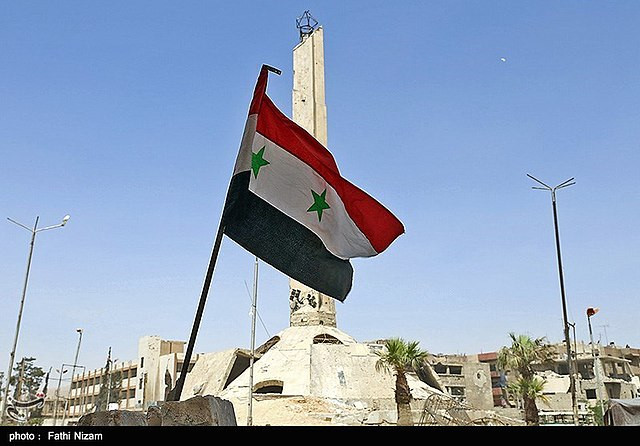Syrian insurgents breached the city of Aleppo on Friday, marking the first major attack on the city since 2016. The unexpected offensive, led by Hayat Tahrir al-Sham (HTS), has displaced thousands of residents and raised concerns over escalating violence in a region already reeling from multiple conflicts.
The insurgents launched their assault earlier this week from their base in Idlib's countryside, rapidly capturing dozens of villages and towns. On Friday, they detonated two car bombs on Aleppo's western edge, clearing the way for ground forces to infiltrate the city. Turkey's Anadolu Agency reported that insurgents had penetrated Aleppo's defense lines, seizing approximately 70 positions in Aleppo and Idlib provinces.
Residents of Aleppo described chaotic scenes as missiles struck neighborhoods and gunfire echoed through the city. Syria's state news agency reported that projectiles hit student housing at Aleppo University, killing four civilians, including two students. Public transportation routes were redirected, and thousands of families fled the violence.
The Syrian government, supported by Russia and Iran, appeared caught off guard. Insurgents posted messages online urging government troops to surrender, while Syrian Armed Forces vowed to repel the attack. In a statement, they accused insurgents of spreading false information about their advances but acknowledged clashes on the outskirts of Aleppo and Idlib.
"This is a violation of Syria's sovereignty in this region," Kremlin spokesperson Dmitry Peskov said on Friday. He urged Syrian authorities to restore order quickly, echoing concerns from the Assad regime. The Syrian Observatory for Human Rights reported that the rebels had also seized the strategic town of Saraqeb, which sits at the intersection of highways connecting Aleppo to Damascus and the coast.
The offensive represents one of the most significant insurgent advances since the Syrian civil war erupted in 2011. Analysts attribute the timing of the assault to shifting regional dynamics. Iran-backed forces, including Hezbollah, are stretched thin due to escalating conflicts with Israel in Gaza and Lebanon. Meanwhile, Russia's focus on its war in Ukraine has reduced its involvement in Syria.
Dareen Khalifa of the International Crisis Group noted, "The regime's lines of defense have crumbled. No one anticipated how quickly the rebels would reach Aleppo's outskirts." However, Khalifa added that it remains uncertain whether the rebels can sustain their gains or whether government forces will mount a counteroffensive.
Turkey, which backs certain opposition groups in Syria, has called for calm. "It is of utmost importance to avoid greater instability and ensure civilians are not harmed," the Turkish Foreign Ministry stated. Despite Turkey's role as a sponsor of the 2019 de-escalation agreement in the region, the insurgents have framed their offensive as a bid to restore the original boundaries of the deal.
The insurgents' use of drones, a new tactic for opposition forces, has raised questions about their growing capabilities. Anadolu reported that drones destroyed a helicopter at a military airbase southeast of Aleppo on Friday. Videos circulated online showed insurgents capturing heavy weaponry, tanks, and depots from retreating government forces.
The United Nations reported that recent violence has displaced 14,000 people in Aleppo and Idlib. Aid organizations have warned that the fighting is straining already fragile infrastructure in opposition-held territories, with hospitals and essential services forced to shut down.
The Syrian conflict, now in its 13th year, has been shaped by shifting alliances and external interventions. The 2016 battle for Aleppo, in which Assad's forces regained control with Russian and Iranian support, marked a turning point. Today, the dynamics are less predictable, with regional players and international powers balancing their interests amidst multiple crises.




